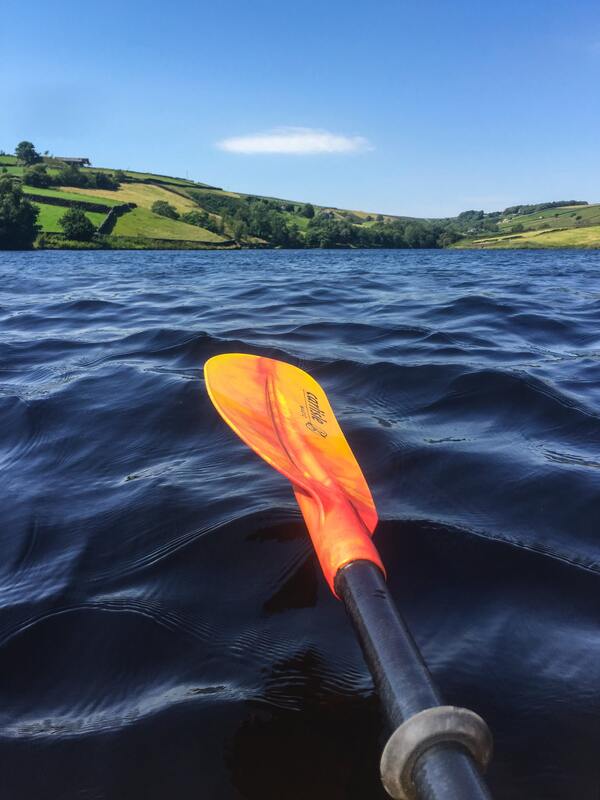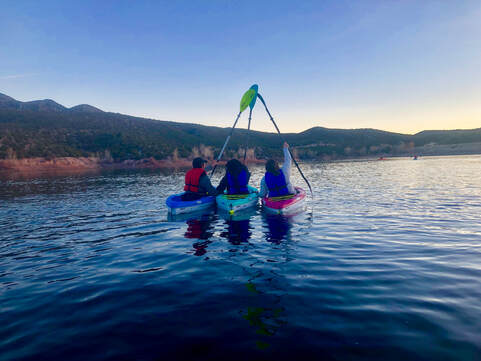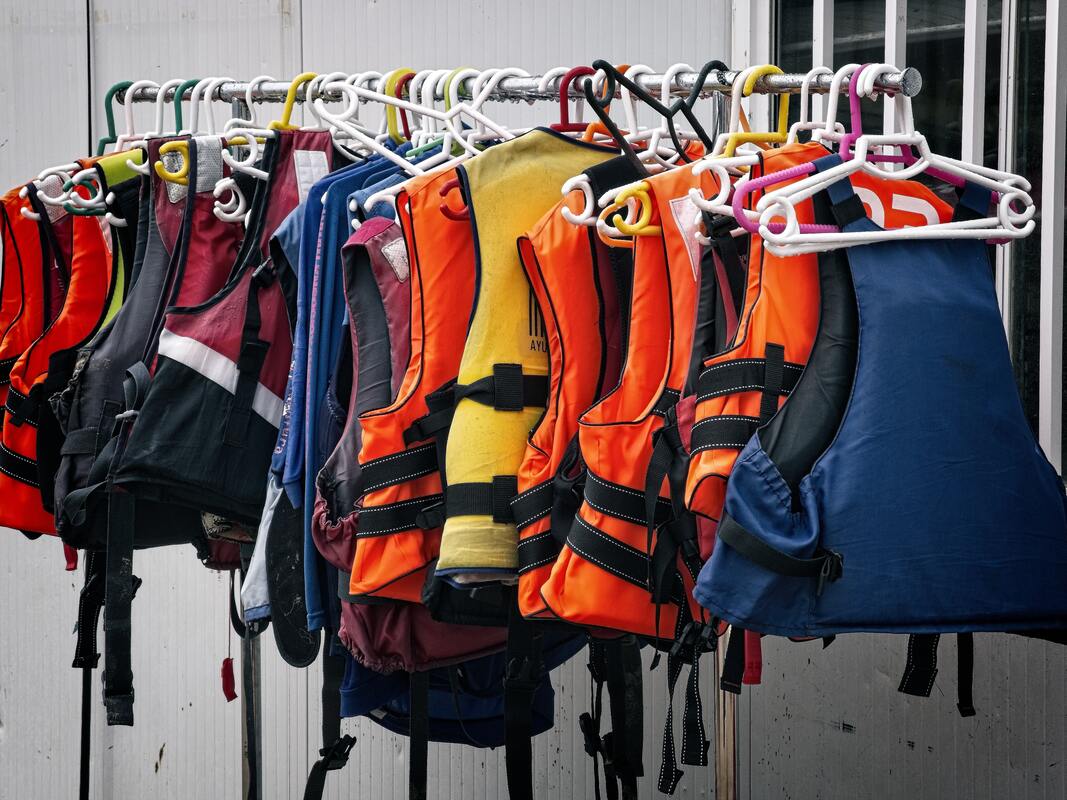Therapeutic ApproachKayaking can be a beneficial way to practice personal responsibility and agency within the bounds of healthy risk-taking.
Being on the water, whether lake or river, often serves as a positive environment for healing, cleansing, and reflection. TRS staff uses metaphorical transference to prompt participants about how their experience on the water is applicable to their lives. |
What to ExpectTewa Roots Society offers flat water kayaking in hard shell kayaks on several lakes in Northern New Mexico, as well as swift water kayaking in inflatable kayaks on appropriate “float” sections of the Rio Grande.
Swift water kayaking is a high risk activity and can be very physically strenuous. It is only offered to groups who have been thoroughly assessed by TRS staff and who meet the requirements physically, emotionally, medically, and behaviorally. Swift water kayaking is also dependent on water levels in the river, environmental concerns, seasons, weather, etc. Guides have Swift Water Rescue training and will provide equipment, communicate safety policies, and direct the path. In general, flat water kayaking tends to be more mellow and swift water kayaking tends to be more demanding. Swift water kayaking has a designated put-in and take-out and all participants must paddle the full distance between the two. Strong swimming skills are not a prerequisite, but participants should be comfortable with the idea of being on a river for multiple hours. Both kinds of kayaking require being in a seated position for long periods of time and having full mobility of the shoulders/arms. We do not kayak the Racecourse or the Box. In some situations, groups might be taken on an overnight camping trip to the Chama river and run the day section in a kayak. |
What to BringEvery kayaker, on a lake or on the river, must wear a PFD (personal floatation device) that is checked and fitted by TRS staff, and is rated for the correct activity. Every kayaker on the river must wear a helmet.
Participants should wear synthetic/gym clothing (not denim or cotton,) closed-toed shoes that can get soaked, and a hat/sunglasses. Additionally, a dry change of clothes and shoes, and a towel are suggested. Participants should not bring anything valuable down the river that could become ruined or lost (cellphones, expensive watches, sentimental jewelry, etc.) TRS will provide PFD’s, helmets, paddles, boats, carabiners, bags, Nalgene bottles, throw ropes, pumps, and a First Aid kit. |
Services |
CompanyAbout Us
Contact Us |


